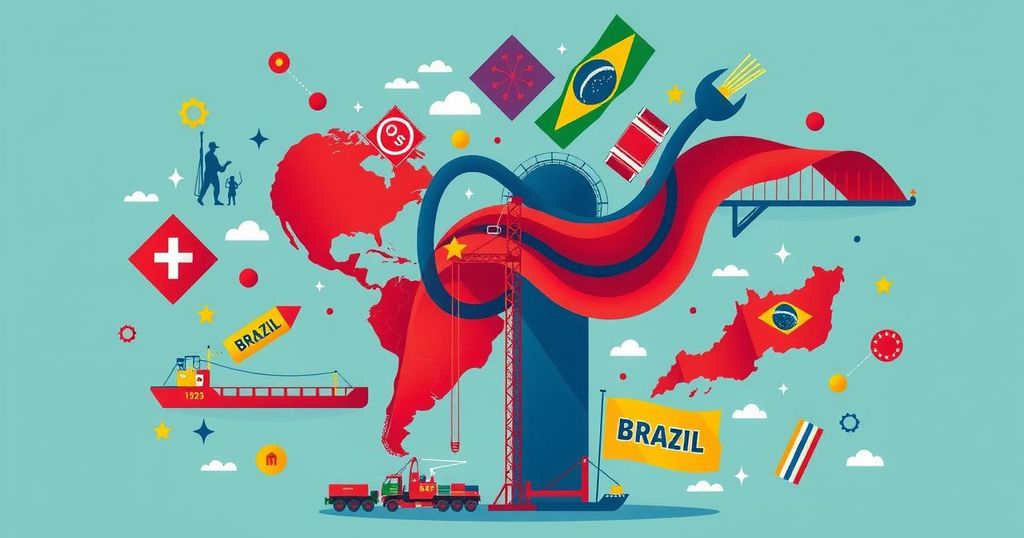President Trump Announces 50 Percent Tariff on Brazilian Goods

- President Trump has announced a 50 percent tariff on Brazilian goods effective August 1, 2025.
- The announced tariff comes from concerns over Brazil’s treatment of former President Jair Bolsonaro.
- The move marks a significant increase from the previously imposed 10 percent tariffs on Brazil.
- Critics argue the tariffs may be an unprecedented means of influencing Brazil’s internal politics.
- R-CALF USA supports the tariffs, citing the need to protect domestic cattle producers from Brazilian imports.
Trump’s Tariff Announcement and Its Context
Attention-grabbing news comes from Washington as President Trump has officially announced a substantial 50 percent tariff on Brazilian goods, set to take effect on August 1, 2025. This decision, heralded on social media, follows an expressive letter penned by the president to Brazil’s leader that lays bare his dissatisfaction with the country’s treatment of its former president, Jair Bolsonaro. The letter highlights serious concerns regarding what President Trump characterizes as Brazil’s attacks on free elections and its encroachment on the free speech rights of Americans—a situation he feels is justifiable to address through hefty tariffs on imports from Brazil.
Concerns About International Response and Tariff Effects
In his letter, Trump pointed to actions taken by the Brazilian Supreme Court, noting a barrage of secret and unlawful censorship orders targeting U.S. social media platforms, which he claims threaten millions in potential fines. This hefty tariff marks a dramatic jump from the previous 10 percent duty implemented earlier this year under his administration’s reciprocal tariffs—a move seen as mild by some critics. There are murmurs within political circles that the White House considered other punitive measures such as sanctions but opted for the tariff strategy instead. Analysts observing international coalitions of emerging economies express concern that America’s actions are prompting a unified front of nations like Brazil, Russia, India, and China to respond, particularly in light of their criticisms of U.S. military involvement abroad and previous tariffs.
Support from Agricultural Groups and Industry Power Dynamics
The political landscape surrounding this tariff is complicated. Wilbur Ross, who held the commerce secretary position during Trump’s first term, suggested that while certain tariffs may be contested legally, some rulings have previously favored the President’s stance. R-CALF USA, a ranchers’ organization, has expressed support for the tariff. The group emphasizes that Brazil’s beef exports have exceeded quota levels despite tariffs, contributing to a concerning decline in the U.S. cattle industry. R-CALF’s CEO, Bill Bullard, argued that the existing over-quota tariffs are insufficient and urged for similar strategies against other countries such as Canada and Australia, identifying a critical need to rebuild America’s domestic food supply chains to ensure national food security.
The announcement of a 50 percent tariff on Brazilian goods by President Trump marks a pivotal step in U.S.-Brazil relations, fueled by concerns surrounding free speech and election integrity. As international reactions brew, particularly from emerging economies, the ramifications on both the agricultural sector and trade relations are yet to unfold. R-CALF USA’s backing indicates a strong internal agricultural support for Trump’s approach, reiterating the ongoing tensions surrounding trade and national security in food supplies.







